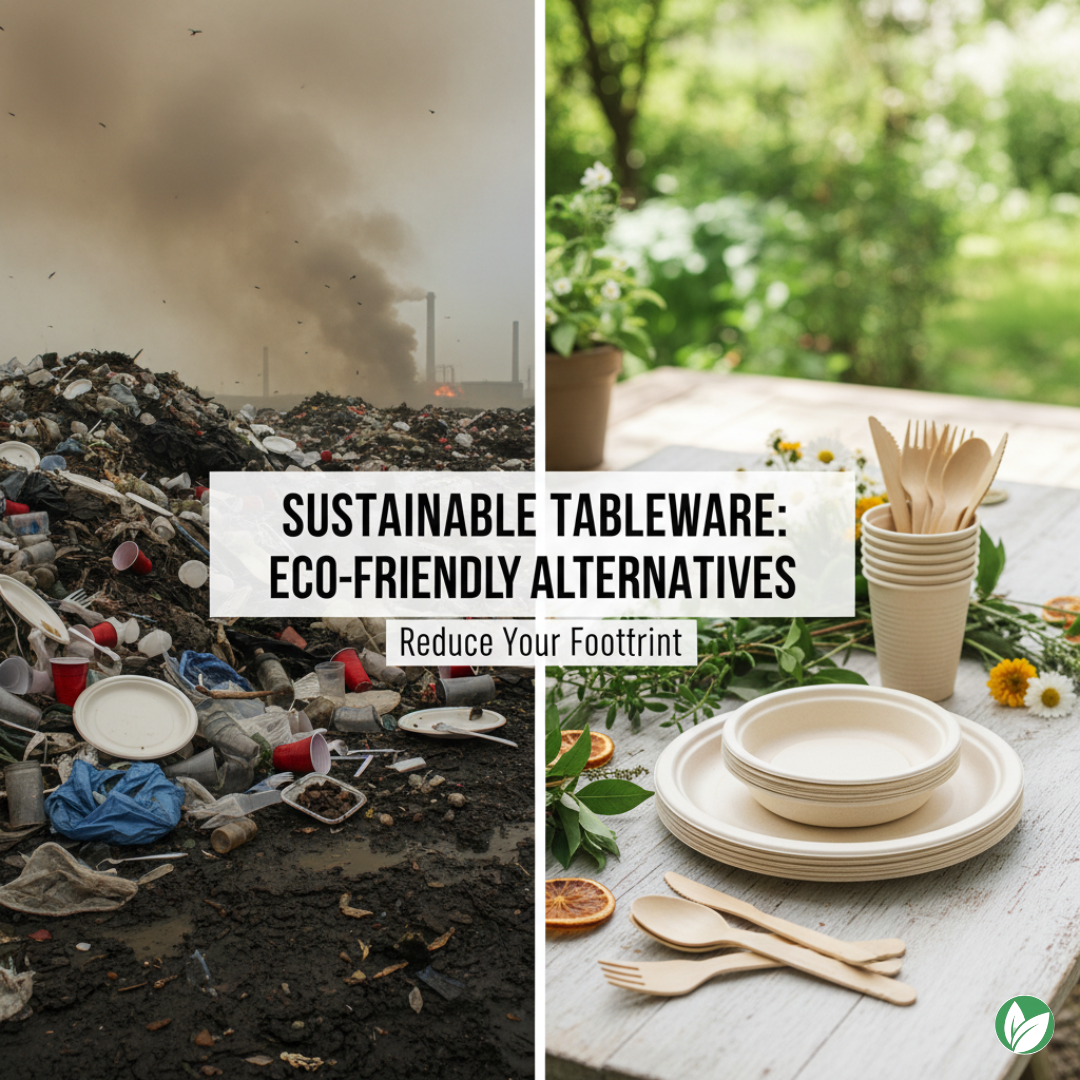
The Environmental Cost of Plastic Utensils and Plates
Share
When it comes to tableware, plastic utensils and plates may seem convenient and inexpensive, but the hidden environmental costs are enormous. Every year, millions of tons of single-use plastics end up in landfills and oceans, posing a serious threat to the planet. In this blog, we’ll explore the impact of plastic tableware, the associated health concerns, and sustainable alternatives that help you make eco-friendly choices.
The Hidden Cost of Plastic Tableware
Plastic plates, cups, and utensils are designed for convenience, but they come with a heavy environmental price:
- Long decomposition time: Most plastic utensils take hundreds of years to decompose.
- Energy-intensive production: Plastic production consumes fossil fuels and emits greenhouse gases.
- Ocean pollution: Millions of plastic items end up in oceans, harming marine life and entering the food chain.
Plastic’s Effect on Landfills and Oceans
Plastic tableware contributes significantly to global waste:
- Landfills overflow: Non-biodegradable plates and utensils take decades to break down.
- Wildlife threats: Birds, fish, and marine mammals often mistake plastic for food, leading to injury or death.
- Microplastics: As plastics degrade, they break into microplastics that contaminate soil, water, and even the food we eat.
Including statistics or visuals (like infographics) in your blog can make this impact more tangible for readers.
Health and Safety Concerns
Plastic tableware isn’t just harmful to the environment—it can also affect human health:
- Some plastics leach harmful chemicals, such as BPA or phthalates, into food.
- Hot or acidic foods can increase the release of toxins.
- Long-term exposure may contribute to hormonal disruptions and other health issues.
Sustainable Alternatives
Switching to eco-friendly tableware is the most effective way to reduce environmental impact:
- Compostable Plates & Bowls – Made from bamboo, sugarcane, or palm leaves, fully biodegradable.
- Biodegradable Utensils – Forks, knives, and spoons that break down naturally.
- Reusable Cups and Tableware – Stainless steel, glass, or bamboo options reduce single-use plastic entirely.
- Eco-Friendly Party Supplies – Decorations, straws, and containers made from recycled or natural materials.
Using sustainable tableware not only protects the environment but also improves your brand image if you run a business.
Conclusion: Make the Switch with Biogreen
Plastic utensils and plates may seem convenient, but their environmental and health costs are far too high. By choosing compostable plates, biodegradable utensils, and sustainable tableware, you can significantly reduce your impact on landfills, oceans, and human health.
🎉 Take action today—switch to Biogreen’s eco-friendly range of plates, bowls, cups, and utensils in Sydney. Celebrate sustainably without compromising style or convenience.
